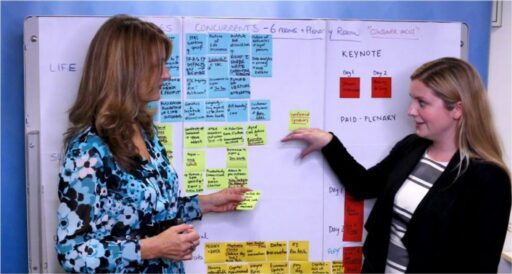Finding the right personal finance coach can be a transformative step towards achieving financial wellness and independence. A good coach not only provides guidance and accountability but also imparts valuable knowledge to help you make informed decisions about your money. In this article, we’ll explore five essential tips to help you find a personal finance coach who can cater to your unique financial goals and needs.
Key Takeaways
- Verify the coach’s certification credentials to ensure they have the necessary expertise and recognition from professional bodies.
- Assess the coach’s financial education background to confirm they have a solid understanding of the financial principles and practices.
- Inquire about the coach’s experience in coaching, specifically their track record and success stories with previous clients.
- Ensure the coach follows ethical practices, including transparency, confidentiality, and a client-centered approach.
- Look for a coach who emphasizes personal development, showing a commitment to continuous learning and adapting to new financial strategies.
1. Certification Credentials


When seeking a personal finance coach, certification credentials are a fundamental aspect to consider. These credentials not only reflect a coach’s commitment to their profession but also their expertise in the field. A certified coach has invested time and effort to master both the theoretical and practical aspects of financial coaching.
It’s important to look for certifications from reputable organizations. For instance, programs accredited by the International Coach Federation (ICF) are highly regarded in the coaching industry. Certifications can be a differentiator, demonstrating a coach’s dedication to providing quality advice and guidance.
Remember, the path to becoming a financial coach may have fewer barriers than other financial professions, making it a more accessible option for those with a passion for helping others achieve their financial goals.
Here are some steps to verify a coach’s certification credentials:
- Inquire about their certifications and the institutions from which they were obtained.
- Check if the certifications are current and recognized by professional bodies.
- Assess the relevance of the certifications to your personal financial goals.
2. Financial Education


A solid financial education is the cornerstone of any effective personal finance coach. It’s essential to start with a comprehensive understanding of financial principles and practices. Achieving certifications such as Certified Financial Planner (CFP) or Chartered Financial Analyst (CFA) can significantly enhance your credibility and skill set. These certifications are not just titles; they are a testament to your competence and a reassurance to your clients of your expertise.
The key to being a good financial coach isn’t just theoretical knowledge, it’s also practical experience.
Continuing education is also vital. Professional organizations offer opportunities to stay updated with the latest trends and news through workshops, webinars, and various resources:
- Workshops and webinars
- Specialized training programs
- Email newsletters, blog posts, and podcasts
Understanding the breadth of knowledge required in personal finance is crucial. Topics such as managing money, debt, savings, and understanding credit are all areas where a coach should be well-versed. Utilizing tools like savings goal calculators and money management tips can also be beneficial in guiding clients towards financial well-being.
3. Coaching Experience


When selecting a personal finance coach, consider the depth of their coaching experience. Practical application of financial knowledge is as important as the knowledge itself. Look for a coach who has spent years in the field, applying principles and strategies to help clients achieve their financial goals.
- Experience in various financial situations
- Proven track record of client success
- Ability to provide personalized advice
Embrace personal growth for financial prosperity. Find a mentor for investment wisdom. Develop self-awareness, set goals, learn continuously, and be resilient for success.
A coach with a substantial history of guiding clients through diverse financial landscapes can offer insights that only come with time and practice. Their experience can be a testament to their ability to adapt and provide relevant, actionable advice in an ever-changing financial environment.
4. Ethical Practice


When selecting a personal finance coach, ethical practice is a cornerstone to consider. A coach with high ethical standards will ensure that your financial well-being is always the priority. They should be transparent about their methods and how they are compensated, whether it’s fee-only, commission-based, or a combination of both.
It’s crucial to inquire if the coach is a fiduciary, as this means they are legally obligated to put your interests first. Don’t hesitate to ask for this in writing to confirm their commitment to your financial success.
Additionally, verify that the coach adheres to ethical guidelines established by reputable organizations. For example, the Financial Educators Council Coaching Standards and the CFP Board are benchmarks for integrity in the industry. Membership in professional organizations, such as the National Association of Personal Financial Advisors (NAPFA), can also be indicative of a coach’s dedication to ethical practice.
Lastly, ensure that the coach’s business is structured legally and ethically, which is foundational for trust and long-term sustainability. Resources like the U.S. Small Business Administration (SBA) provide guidance on setting up a coaching business with integrity.
5. Personal Development


The journey to becoming a proficient personal finance coach extends beyond formal education and experience; it encompasses personal development. This aspect is about growing your ability to empathize with clients, understanding their unique financial situations, and guiding them towards their goals with patience and insight.
- Cultivate a growth mindset
- Enhance communication skills
- Develop active listening abilities
- Learn motivational interviewing techniques
Personal development is a continuous process that not only benefits your clients but also enriches your own life.
Remember, personal finance is crucial for setting financial goals, avoiding debt, and planning for retirement. Learning budgeting skills is essential for managing finances effectively. As a coach, your personal growth will reflect in the success of your clients, making it an indispensable part of your coaching toolkit.
Conclusion
Finding the right personal finance coach can be a transformative step towards achieving financial wellness and empowerment. As you consider your options, remember to look for a coach who not only possesses in-depth financial knowledge and certifications but also aligns with your financial goals and values. A coach who is committed to ethical practice and continuous personal development will be able to guide you effectively. Keep in mind that the best financial coach is one who acts as an accountability partner, helping you to navigate challenges and celebrate successes along your financial journey. Take the time to vet potential coaches carefully, and choose someone who resonates with your financial aspirations and personal well-being.
Frequently Asked Questions
What certifications should a personal finance coach have?
Certifications like Certified Financial Planner (CFP) or Chartered Financial Analyst (CFA) are important as they demonstrate the coach’s competence and expertise in financial planning.
How important is formal financial education for a personal finance coach?
Formal financial education is crucial as it provides the foundational knowledge required for effective financial coaching and helps in building credibility with clients.
What level of experience should I look for in a personal finance coach?
Look for a coach with a proven track record of helping clients achieve their financial goals. Experience in coaching and financial management is key to their ability to guide you effectively.
How can I ensure that a personal finance coach practices ethically?
Check for membership in professional bodies that enforce ethical standards, ask for references, and ensure they have a transparent fee structure and conflict of interest policy.
Why is personal development important for a personal finance coach?
Continuous personal development ensures that a coach is up-to-date with the latest financial strategies and tools, which can provide more value to their clients.
Is it advisable to hire a financial coach without certifications for basic financial guidance?
While uncertified coaches may offer basic guidance, it’s important to vet their knowledge and experience. Certified professionals are generally more reliable for comprehensive financial advice.





